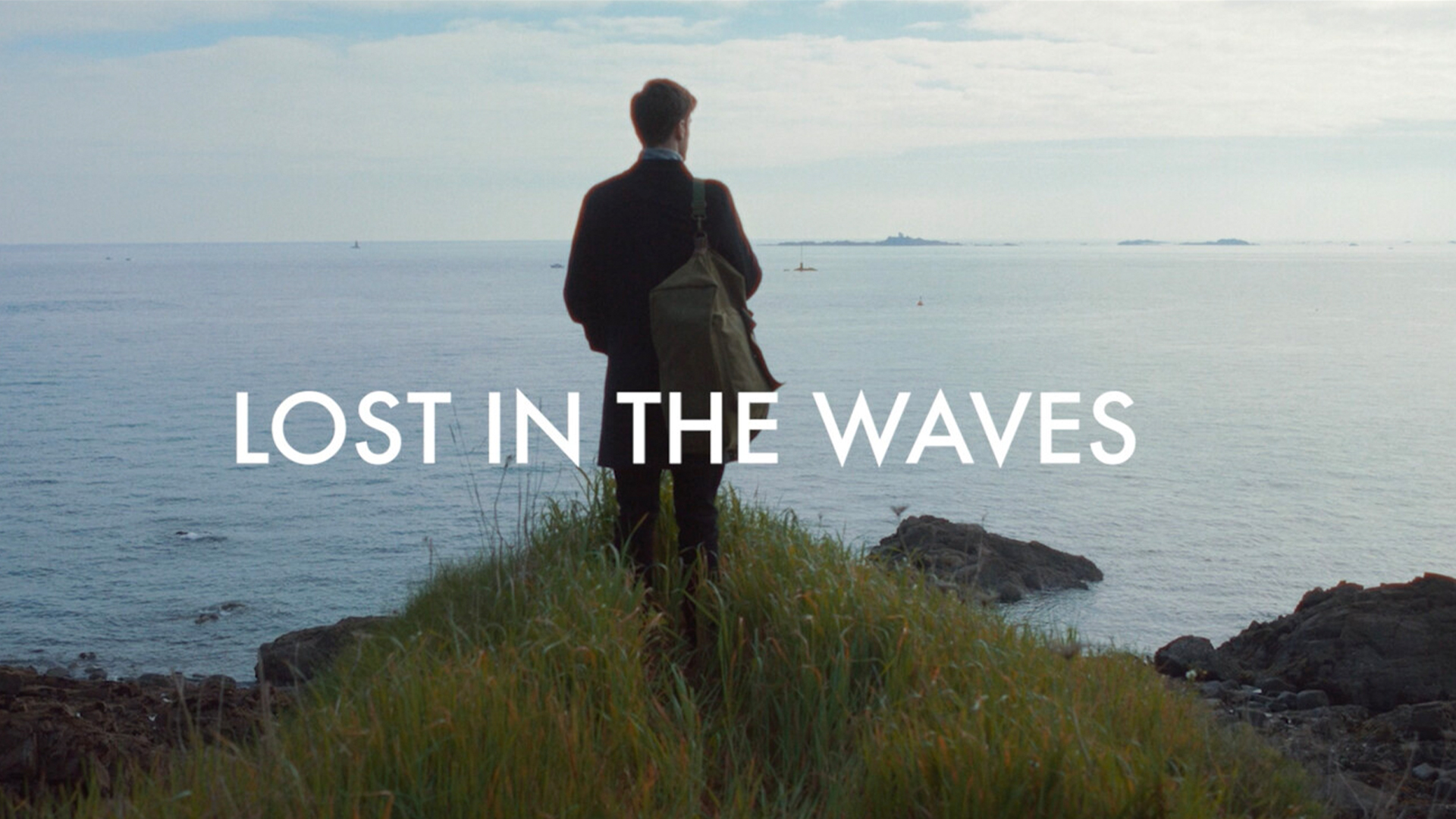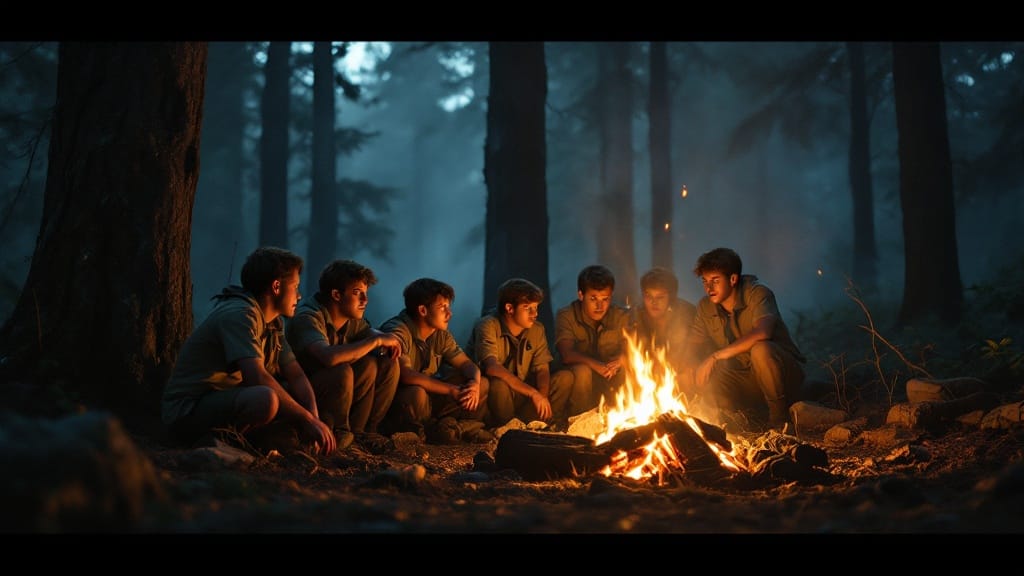Drama
Lost in the Waves

Directed by Joss Berlioux and Franck Marchand
Warning – This review may contain spoilers.
Lost in the Waves follows Adam, a struggling writer who retreats to his family’s house in search of solitude, only to find that his estranged stepsister, Sophie, is already there. As they are forced to confront each other’s presence, unresolved tensions and buried memories from their shared past begin to surface. The film explores themes of family estrangement, unresolved trauma, and the inevitable confrontation with one’s past. The setting of the isolated family house serves as a symbolic backdrop for the emotional storms that unfold between Adam and Sophie, as they navigate old wounds and repressed memories.
The film successfully captures the tension and complexity of the sibling relationship, particularly through the performances of Roel Dirven as Adam and Anastasia Martin as Sophie. Their portrayal of two people who have drifted apart emotionally and now must come to terms with their shared history is raw and compelling. The story’s simple premise allows the characters’ emotions and dynamics to take center stage, and the film does a good job of building suspense through their interactions. As their past slowly unravels, viewers are drawn into the emotional depth of their journey, especially during the film’s climax, where both characters are forced to face uncomfortable truths about their past.
Lost in the Waves is technically a strong film with particular emphasis on its cinematography. The film’s visual style effectively captures the isolation and tension between the two leads. The framing of shots, especially those that focus on the characters in intimate moments, adds a layer of intensity that complements the emotional weight of the narrative. The use of close-ups is particularly effective in conveying the subtle emotions of the characters, making the film feel personal and immersive. The sound design and music also enhance the film’s atmosphere, adding a haunting quality that underscores the emotional tone of the story. While the sound and music are generally well-mixed, there are moments where the editing feels slightly off, with certain scenes dragging a bit in the first half of the film. However, this is quickly remedied as the pacing picks up in the latter half, leading to a more engaging second act.
Despite some slower moments in the beginning, the film’s emotional core ultimately shines through. The relationship between Adam and Sophie is carefully developed, and the film’s strength lies in its ability to make the audience feel invested in their reconciliation, even as difficult memories and unresolved conflicts come to the surface. The dialogue is effective, revealing the characters’ internal struggles without being overly dramatic, and the gradual build-up of tension keeps the audience engaged.
Lost in the Waves is an emotionally driven film that balances a simple premise with deep character exploration. While it may take some time for the story to fully develop, the strong performances and technical elements make it a worthwhile watch. Viewers who appreciate films that focus on character dynamics and emotional storytelling will likely find Lost in the Waves both moving and thought-provoking.
Comedy
Troop 458

WARNING! This review contains SPOILERS!
Troop 458, written by Trevor Allen, captures the often daunting, yet transformative, experience of being the new kid in a world full of unknowns. We follow Sidney, an anxious boy thrown into his first Boy Scouts campout, where he faces both the perils of acceptance and the strangeness of his eccentric scout leader. As spooky campfire tales start to weave into reality, Sidney is forced to confront his fears head-on, finding moments of humor, adventure, and unexpected camaraderie along the way.
I like the concept of Troop 458 because it blends coming-of-age themes with a playful sense of adventure, all wrapped in an atmosphere tinged with just the right amount of mystery. Allen’s writing brings to life a cast of memorable characters, especially through Sidney’s journey of growth. The tension between humor and fear feels authentic to the Boy Scouts’ setting, and it captures the real challenges kids face when trying to fit in.
What resonated with me most was the screenplay’s exploration of courage—not just in facing mythical dangers but in embracing who you are, quirks and all. Some aspects could benefit from a clearer focus on character motivations and tighter pacing to keep the momentum strong, particularly during scenes that blur the line between myth and reality.
The dialogue is great in many places, offering humor that feels natural for a group of young scouts. There were moments where I felt the conversations could be a bit sharper or more distinct to heighten the comedic or emotional impact. Character development is a strong suit, with Sidney’s evolution being both relatable and satisfying, but secondary characters could have a bit more depth to elevate the ensemble.
Allen’s Troop 458 is polished, with solid grammar, spelling, and formatting that adhere to professional standards. The structure is clean and makes for an easy read, setting up scenes that are visually compelling.
Troop 458 delivers an enjoyable mix of humor, heart, and a touch of the supernatural, leaving me eager to see how it might come to life on screen.
Drama
Ellie

WARNING! This review contains SPOILERS!
Directed by Marcus Mejia
Ellie is a refreshing experience that pulled me right into the world of a young, shy man navigating a work meeting while secretly yearning for a bit of magic in his everyday life. We’re taken through his imaginative, musical daydream—a beautiful escape from reality that reveals his true desires. I loved how the film peeled back layers of his personality without a single word of dialogue. Instead, the music carried the narrative, and surprisingly, it worked so well.
Marcus Mejia did an excellent job blending dramedy elements to keep the film engaging. The moments of humor and more emotional beats make the film feel well-rounded. Mejia’s choice to swap dialogue for music was a bold move, and it paid off. I could feel the character’s internal struggles and hopes as the music brought out emotions words couldn’t.
The lighting felt intimate, almost like it was giving us a window into the protagonist’s soul, and the cinematography perfectly captured the whimsical tone of his daydreams. I noticed how smoothly the editing transitioned between reality and fantasy, which made the story’s pacing feel just right. The sound design was on point, with every beat of music syncing beautifully with the character’s emotional highs and lows.
I loved when the protagonist’s daydream overlapped with reality, creating this seamless blend that felt so relatable. I admired how it portrayed the quiet, unspoken dreams we all carry. It was a reminder of the power of our inner worlds and how much magic lies just beneath the surface of our everyday lives.
Ellie left a gentle yet lasting impression. It’s a unique, heartfelt short film that shows how creative risks can pay off. Ellie is a memorable journey that’s definitely worth the watch.
Drama
Finding Acceptance

Directed by Andrew DeBennett
WARNING! This review contains spoilers.
Watching “Finding Acceptance” was an experience that brought me back to those anti-bullying films we’d see in school assemblies. The story follows Mary, a new student in a wheelchair, navigating the often-tough world of school friendships. Initially, she faces teasing from her peers but finds a genuine friend in Liz, who even manages to extend kindness to Mary’s bully, Max. The message is straightforward and clear: acceptance and empathy matter.
I could see what the director was aiming for—Andrew DeBennett notes that the film was both a joy to create and a personal project. The heart of the story shines through, with Kaylah Pollock (Mary) and Laney Hansen (Liz) bringing warmth to their roles. Their connection feels genuine, even if the overall story feels a bit too familiar.
Technically, the film could have used some fine-tuning. The sound mix was rough, with the music often drowning out dialogue. The editing also felt choppy, making it harder to stay immersed in the story. The dialogue leaned into clichés—phrases like “loser” felt outdated and took away from the realism. The cinematography, however, was a bright spot, creating a warm, inviting feel that suited the film’s positive message.
I felt like the story could’ve benefited from more depth. The bullying that Mary faces is minimal, making her eventual friendships feel somewhat predictable. For younger audiences, this simplicity might be engaging and easy to digest, but it misses the chance to delve into the more complex aspects of acceptance.
In the end, “Finding Acceptance” delivers a positive, albeit simple, message. While it didn’t connect with me on a deeper level, I can see it being a useful film for educational settings, especially for younger viewers learning about kindness and friendship.










